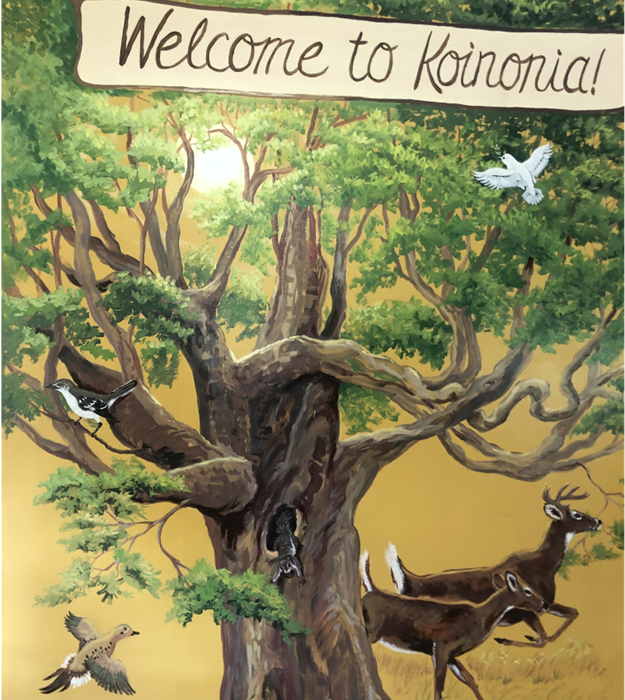Koinonia Farm
Published 4:27 pm Thursday, October 5, 2023
Koinonia Farm was created with a vision of Christian fellowship and inclusivity, long before other institutions in the South were forced to desegregate. Founded in 1942 by Clarence and Florence Jordan, with the help of the Englands, it had endured multiple violent attacks during its early years and throughout the civil rights era.
Second year Koinonia intern Sue Morrison gave me a tour on the 28th of Sept. One of the first places we visited was the bakery, donning hair nets after traversing the long screened-in catwalk. Morrison pointed out a mixing machine that was over a century old, and still in use, and she began to talk about how the baker made Koinonia’s chocolate.
“We get our chocolate fair trade, so the farmers get a fair wage in the country of Ghana over in Africa, then the cocoa is sent to Belgium, where it’s processed into these little nibs that we are able to use. When we are ready to make a batch of chocolate, she’ll put it into these vintage melters. She’ll put them in at the end of a day and they’ll melt slowly over night. Then in the morning, she’ll get out a certain amount in batches and pour it out on the marble tabletop.”
In one room, a large batch of chocolate squares were already cooling on a marble slab. While the chocolate is imported, the pecans are local. Morrison told a story about Michael, their pecan orchard manager.
“I saw him standing out in the pecan orchard, just standing there with his back to me. I was saying ‘what is he doing there? Contemplating the trees? Is he praying for the trees?’ Turns out he was flying a drone, up to the top of the trees to actually take a look at the crop.”
Morrison talked about his prediction.
“He said this year is going to be medium to small.”
She continued to guide me enthusiastically through the whole pecan to baked goods process, telling memories from the different jobs she had worked.
“I’ve worked in the orchard in the beginning when we are picking up sticks to clear away to get ready for harvest, I’ve worked in the harvest, I’ve worked over in pecan plant one, I’ve done sorting, I have worked in the bakery to package and make the products, and I’ve worked in shipping to ship them out. Our mail order business has morphed into an online business.”
She showed me where the nuts were processed.
“The nuts are hand sorted. There will be three people per table plus a few sitting on the sidelines, as the nuts go by you are picking out any debris or pieces of shell or shriveled up bad ones that you’ll put into a little bin of trash. They put on music, it can be tedious, but it can be fun. Everyone takes their turn when it’s pecan season.”
After showing me around the bakery and pecan processing facilities, we walked across the road to visit Koinonia’s chapel. Morrison talked about how Koinonia continued to welcome others despite their differences.
“We are an ecumenical community. We’re Christian, but we welcome people of all faiths or no faith. Even this past summer, we had a guy who was Buddhist. He was welcome and he was open to coming to chapel with us every day, and it was great.”
Morrison talked about how Koinonia had faired over the years.
“There were times in the 70s, it was the hippy times, when people were looking for an alternative lifestyle, and a lot of people came here. But that was when they were real busy with the beginning of Habitat for Humanity, they were building a lot of houses. There was a community center in the village just north of us where there was child care and after school programs. This place has been through a lot of changes and a lot of things and it kind of depends on how many people at a time are here as to what we can do, and the interests of those people. It’s amazing to me that it started in 1942 and we’re still going.”
Morrison talked about their current membership.
“We have eight members. It’s a few years program to become a member to make sure that this is what you want to do. So eight members, but then there are five of us interns.”
She also mentioned that others visited the farm for short term stays, adding to the ebb and flow. The lunch bell brought around a dozen or more to the dining hall. A prayer was given for the food, and I was told that I would see them again in the evening for A Taste of Sumter. I did, and I was finally able to taste a piece of their chocolate.







